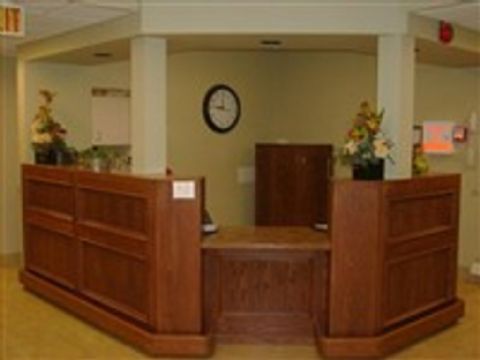Brampton Transitional Care
Click for Brampton Transitional Care Listings BelowOverview
Transitional care in Brampton provides essential short-term support for seniors moving between levels of care — such as from hospital to home, or while waiting for a long-term care (LTC) placement. These programs help older adults recover, receive the right support, and safely prepare for their next living situation.
If a hospital stay has ended but returning home isn’t yet possible, transitional care offers temporary accommodations and services tailored to the person’s medical and personal needs. Scroll down to view transitional care options in Brampton.
What to Expect from Transitional Care in Brampton
- Short-Term Accommodations: Provided in hospital Transitional Care Units (TCUs), select retirement residences, or community care facilities. Stays typically range from a few days to several months.
- Personal Support and Daily Assistance: Includes help with bathing, dressing, mobility, toileting, and medication management. Support is adjusted as needs evolve.
- Clinical Monitoring and Rehabilitation: Access to nursing services, health assessments, and rehab therapy helps seniors regain strength and independence.
- Meals, Laundry, and Housekeeping: Transitional care programs usually include nutritious meals, laundry service, and housekeeping support.
- Recreation and Social Activities: Many programs offer social engagement and light activity options to promote mental wellness and connection.
Benefits of Choosing Transitional Care in Brampton
- Bridge Between Hospital and Home or LTC: Offers interim care for seniors who are stable but not ready to return home or enter long-term care.
- Reduces ER Visits and Hospital Readmission: Helps prevent complications or unnecessary hospital stays during recovery.
- Supports Recovery and Independence: Combines care, therapy, and support to promote progress toward permanent housing or return to home.
- Relieves Caregiver Burden: Families get peace of mind knowing their loved one is receiving proper care in a safe environment.
Frequently Asked Questions About Transitional Care in Brampton
What is transitional care for seniors in Brampton?
Transitional care is short-term support for older adults who need temporary housing and care after a hospital stay or while waiting for long-term care. It ensures continuity of care and a safe environment during periods of change.
How long can a senior stay in transitional care?
Stays typically last from a few days up to a few months, depending on recovery goals and the availability of long-term housing or care options.
What types of services are included?
Services often include nursing support, rehabilitation, personal care, prepared meals, housekeeping, and recreational programming.
Where is transitional care offered in Ontario?
Transitional care is provided in hospitals, retirement residences, or through community-based services like the Ontario Health atHome transitional program.
Featured Residences Offering Transitional Care in Brampton
Need Help Navigating Transitional Care?
If you’re unsure about the next steps for yourself or a loved one, we’re here to help. Visit our Consulting Services to connect with someone who understands Ontario’s senior care system.
You can also explore other housing options in Brampton, including Assisted Living, Retirement Homes, or Long-Term Care.
Brampton Transitional Care
What does transitional care cost in Brampton?
The cost of transitional care in Brampton can vary depending on the type of program, provider, and level of support required. Some transitional care units (TCUs) operated under Ontario Health atHome may provide coverage for the first 30 days. After that, income-based daily co-payments might apply. In retirement homes offering short-term stays, daily care rates typically include meals and support services, with pricing ranging based on room type and level of care. These options are often considered more cost-effective than prolonged hospital stays or premature long-term care placement.
What factors affect the cost of transitional care programs?
Several variables can impact the cost of transitional housing for seniors — including program type, care intensity, duration of stay, and whether additional services or medications are needed. Some settings are public and subsidized, while others are private and charge full rates. For government-supported programs, subsidies or reduced co-payments may be available depending on income. Transitional care can also include out-of-pocket costs like hygiene items or over-the-counter medications. For context, transitional care unit pricing is typically lower than long-term care or hospital admission.
To learn more about a transitional program example, see this Short-Term Transitional Care Program overview.
Can I compare transitional care costs using the calculator?
Yes. If you have a general estimate for short-term care costs — whether from a TCU, retirement home, or post-hospital recovery care provider — you can use our Senior Housing Cost Calculator to compare it with your current living expenses. This can help you decide whether transitional care is financially viable, especially during recovery or while waiting for long-term placement.


